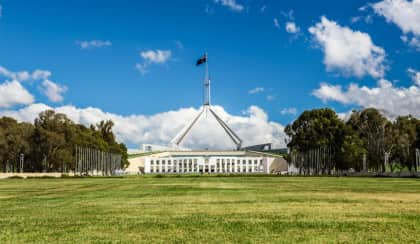Property industry warns against ‘unwise’, ‘illogical’ negative gearing moves

Initial reactions focused on the impact to supply, with Mike Zorbas, chief executive of the Property Council, pointing to Deloitte modelling that showed negative gearing changes have the potential to reduce the number of new homes being built by roughly 4 per cent.
“We have a huge housing gap across Australia and when modelled negative gearing changes widen that gap,” Zorbas said.
He questioned why the government would want to consider a policy that has the potential to reduce the number of new homes being built at a time when it has committed to increasing supply.
“We are already only building 160,000 homes against the 240,000 homes we need each year,” he stated.
So far, the Prime Minister and Treasurer have only said that Treasury officials are considering options to scale back negative gearing and capital gains tax, maintaining that it is normal for such tax policy reviews to take place. But the move comes at the same time as the government is hoping to exert a last-ditch effort to pass its Help to Buy shared equity scheme legislation, which could still have a chance of moving forward. The Greens, whose support is needed to pass the bill, have said they are prepared to negotiate only if the government will consider changes to negative gearing and capital gains tax.
In a statement on Thursday, 26 September, the party claimed victory for putting the issue back on the table, with Greens’ housing spokesperson Max Chandler-Mather stating that he believes government is “cracking under pressure”.
Property Council asks government to start with stamp duty
Zorbas noted that the Prime Minister is aware of the Deloitte modelling, and has referenced its figures while commenting that changes to negative gearing and capital gains tax “could potentially have a negative impact on [housing] supply”.
In the Property Council’s view, if the government is serious about supply concerns it should start by looking at the barriers currently constraining home building, such as the cost of stamp duty.
“Government taxes and charges are 30 per cent of the cost of your new home across the country. Let’s start by reducing government taxes and reforming planning systems to boost supply and avoid prioritising a discussion about a change that models as damaging investment in new homes across every Australian city and town,” Zorbas said.
Rental market repercussions flagged as major issue
Antonia Mercorella, CEO of the Real Estate Institute of Queensland, raised alarms regarding the potential flow-on effects to the rental market should negative gearing reforms be pursued.
The institute argued that altering negative gearing could exacerbate existing pressures on the rental market, further straining households that are “already grappling with rising living costs”.
She said this latest statement was “particularly disappointing given the new Federal Housing Ministers’ statement in August that the government had no intention of changing the current negative gearing system”.
Mercorella flagged that frequent changes for investors have already served to sew uncertainty among the market.
“The housing market requires stability and predictability, especially in these challenging times,” she said, urging the government to engage with industry bodies on policies that could lead to a more sustainable rental market.
“It would be unwise for the federal government to seek to eliminate what is essentially a straightforward tax deduction for property investors. Abolishing negative gearing would eliminate a range of economic benefits, fail to tackle housing affordability, and impact everyday Australians the hardest,” Mercorella said.
HIA chief economist Tim Reardon also called for caution on any policy changes that had the potential for negative impacts on the rental market.
“It is illogical to conclude that reducing opportunities to provide rental accommodation can make a meaningful impact on housing supply and rental affordability,”he said.
“We cannot tax our way out of the housing affordability problem. The solution is less tax on housing and less government distortions on the market,” he said.
Short-term and long-term impacts unclear
Suresh Raghavan, acting CEO of LocalAgentFinder, noted that the market impacts across rentals and sales could be widespread, and urged the government to carefully consider the bigger picture.
“The potential reforms to negative gearing could have wide-reaching effects, with owner-occupiers, investors, and different age groups feeling the impact in various ways. For investors, there may be significant implications, including short-term volatility and long-term adjustments,” Raghavan said.
Raghavan, like Mercorella, also flagged that frequent changes to property policies were causing stress for consumers and industry professionals alike.
“The market is already navigating the challenges of the past 12–18 months, so clarity from the government is crucial. It’s vital that we understand how these changes will shape both housing supply and affordability, and how investors can adapt their strategies to meet future demand,” he said.

